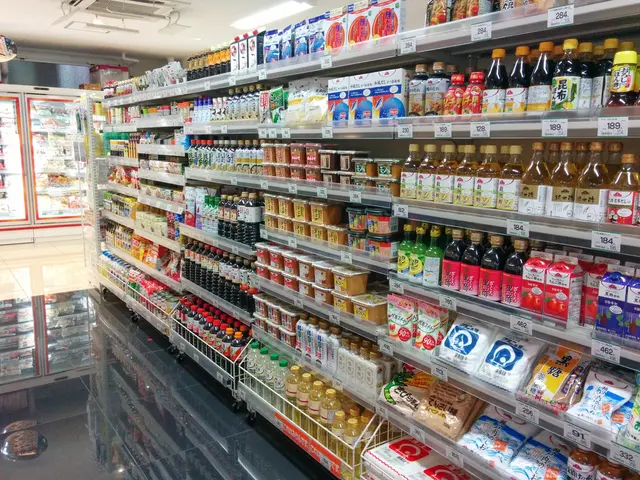U.S. Audi Workers Protest Trump's Expansion Plan, Citing Concerns over Employment Stability
=====================================================================
In the face of weak European demand and stiff competition, several major German automakers, including Audi, are considering expansion plans in the United States. However, Audi's labor leaders are insisting that any expansion must not come at the expense of jobs and production capacity in Germany.
The German automobile industry has been grappling with the impact of President Trump's 25% tariff on European car imports, which was imposed in early 2025. This tariff has added pressure to the industry, with companies like Porsche, Mercedes-Benz, Stellantis, BMW, and Audi expected to suffer significant losses.
Audi's employees are demanding job security before any move to the U.S., as the company's factories in Germany are currently running below capacity amid lower demand in China and Europe. Jörg Schlagbauer, Audi's works council chief, has stated that there is currently no need to build a plant in the U.S. for capacity reasons, and if a U.S. plant is pursued for political reasons, it must not undercut German employees' job security or factory utilization.
Audi has already agreed with employee representatives to cut about 7,500 German jobs by 2029 via buyouts and early retirement, in exchange for guarantees of job security for remaining workers until 2033. Labor leaders want to ensure these commitments are honored before agreeing to shift or add capacity abroad.
BMW is also considering adding shifts at its Spartanburg plant, and Volkswagen AG, Audi's parent company, already operates one plant in the U.S. and is building another for its Scout brand. However, BMW has urged the European Union to cut tariffs on vehicle imports from the U.S. to 2.5% from 10%.
Mercedes-Benz will add its best-selling GLC SUV to its Alabama plant lineup from 2027, making it the center of production for SUVs. BMW is the largest U.S. car exporter by volume, and Mercedes-Benz exports heavily from its Alabama plant.
Stellantis reported a €2.3 billion ($2.7 billion) net loss in the first half of 2025 due to the tariff, while Porsche could lose €3.4 billion ($3.9 billion) in earnings by 2026 due to the tariff.
In conclusion, Audi's labor leaders demand long-term guarantees that German jobs and production levels will be maintained before accepting building a new U.S. plant, fearing that otherwise, expansion could jeopardize German employees and operations. The ongoing economic and political context, including the tariff, has added complexity to these decisions, as companies weigh the benefits of expansion against the need to protect their workforce and operations in Germany.
- The ongoing tariff on European car imports by President Trump has impacted the financing of several automotive companies, such as Audi, Mercedes-Benz, Stellantis, BMW, and Porsche, leading to potential losses and adjustments within the industry.
- In the context of weak demand and stiff competition, German automakers like Audi are contemplating expansion plans in the United States, but these plans must navigate the delicate waters of policy-and-legislation, particularly labor agreements and general-news headlines about job security.
- The transportation sector, specifically the automotive industry, finds itself at a complex crossroads, with their decisions about expansion influenced not only by business opportunities but also by political circumstances and the desire for stability in their existing operations within Europe.





